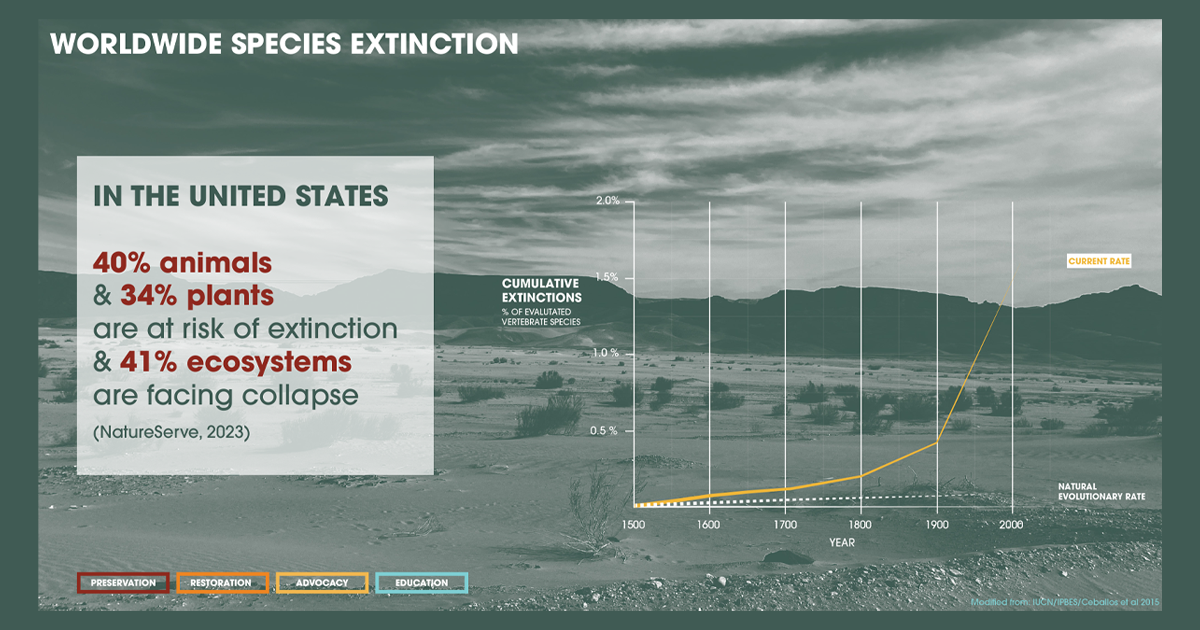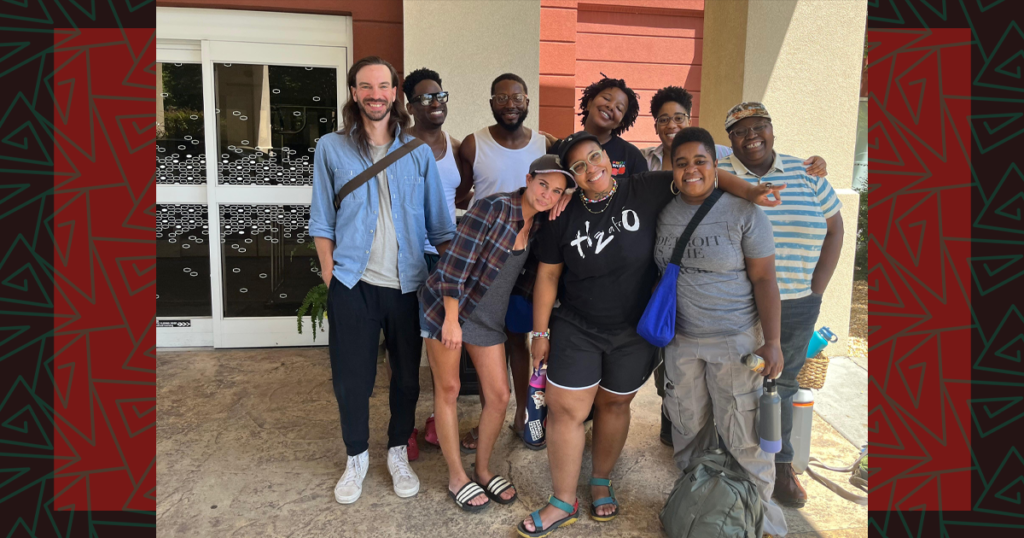Luma Kennedy, NCEJN Communications Manager
Species extinction is a serious issue that is already impacting every aspect of our lives. The data is staggering. Industry, industrial agriculture, unchecked development, mining, and all capitalist based systems, are robbing us of our health through the destruction of nature. I believe that species extinction is a subject that ought to be discussed seriously in the EJ movement. Please bear with me as I tell you a personal story, and attempt at getting the conversation on species loss started!
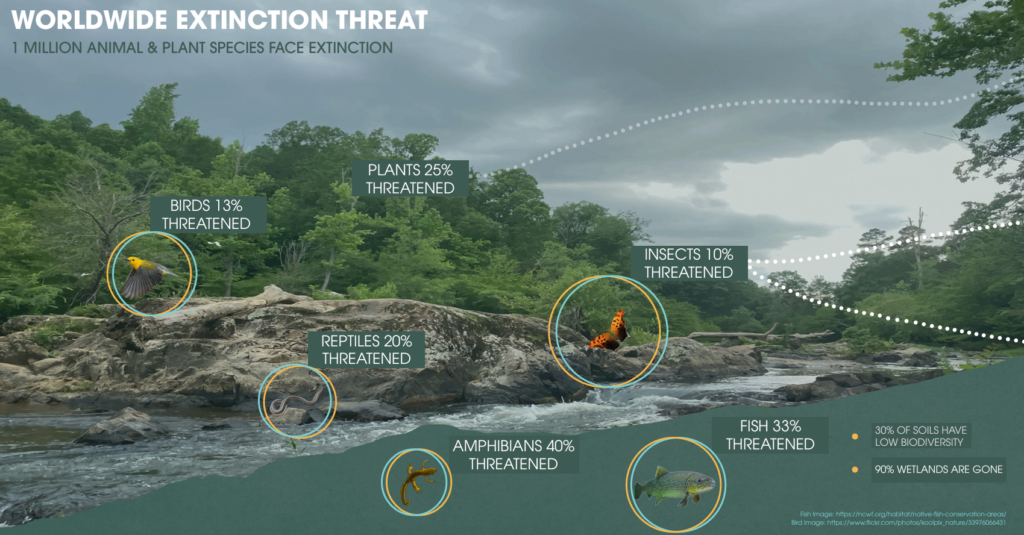
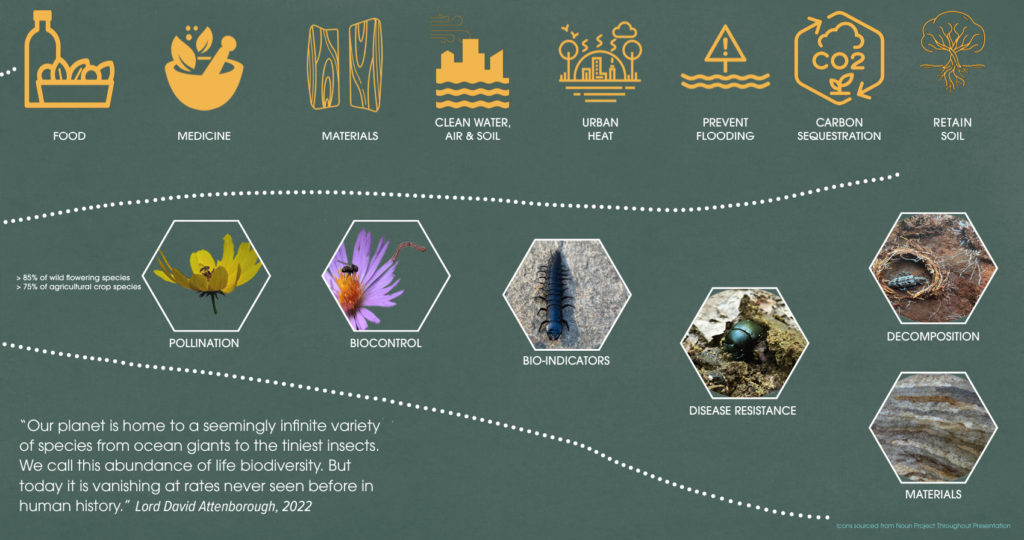
Mother nature showed empathy today.
She put a halt to the bulldozers by sending us some rain!
For the past 3 weeks I witnessed, (no, felt in every cell of my body, with all my senses), the destruction of a hundred trees, over a third of which are about 80 years old. I saw birds and squirrels frantically flee through my yard, escaping the carnage next door, while so many other non-human animals were not as lucky.
2.3 acres of diverse forest clear cut in a blink of an eye. This is not an uncommon occurrence in Raleigh (or North Carolina), and every time I hear the words “Progress” and “Growth”, I know violence is sure to follow.
The growl and thud of heavy machinery is our new soundscape, and soon most of us will be desensitized to it. (These sounds are extra jarring and bring more grief and anger than most can imagine. These sounds, to me, are not unlike the sounds of house demolitions and the razing of ancient olive groves that my people have endured for over 8 decades).
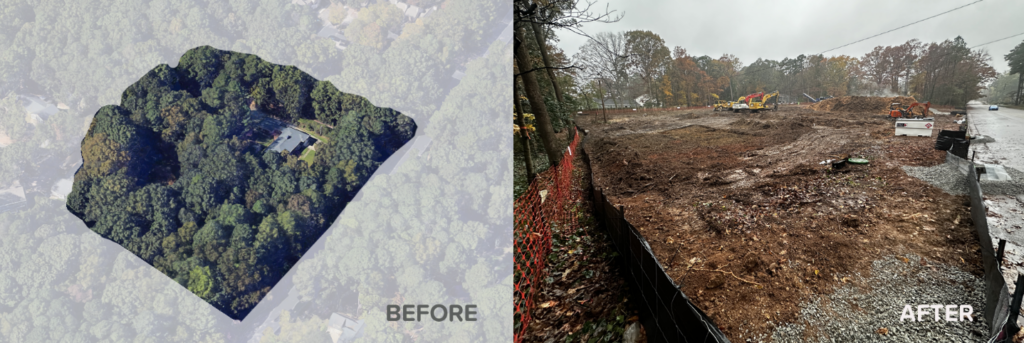
Several months ago, I had so many questions for the Storm Engineer and the Forester at the city of Raleigh. How is this allowed to happen when we in NC are witnessing first hand the effects of the climate crisis? “We hear you, we agree, but our hands are tied!”.
How can the city of Raleigh be allowed to call itself a biophilic (nature loving) city when 80 year old trees are being razed to make room for 15 “quick and cheap” mini-mansions? “We hear you, we agree, but our hands are tied!”.
This development of 15 houses where there used to be two, will also injure the root systems of 10 of my mature trees — both depriving my family and the neighborhood of their benefit, and costing me thousands of dollars, when in 5 years, they all get sick and I have to pay to cut them down. The City of Raleigh has no protections for homeowners. Imagine if they had chosen to preserve 50% of the trees, and build half the houses!
This is allowed because of Raleigh’s 2021 sketchy Missing Middle Ordinance, which amended the city’s zoning code to permit more types of housing. Sounds great right? Wrong! Even though this is touted as a good solution to exclusionary zoning, these houses, duplexes and apartments are priced so high, the majority of the population can’t afford them. Developers get to wreak havoc on our environment while raking in the money. (The other argument is about sprawl — I can write a lot about this – but I think an example of better practices to combat sprawl would be better and less angsty!)
Developers are getting away with bare minimum requirements when it comes to tree preservation and stormwater management, while our communities flood because our stormwater systems can’t handle the insane increase in impervious surfaces (pavement doesn’t let water percolate into the soil! Trees on the other hand, are excellent at circulating water). Our outdated storm water systems then export pollution and heavy flow downstream to rural communities, causing flooding, fish kills, health issues in people who depend on the river, and more.
Missing middle has nothing to do with low income housing, but most residents of Raleigh still erroneously think so, and turn a blind eye to the clear cutting of our urban forests.
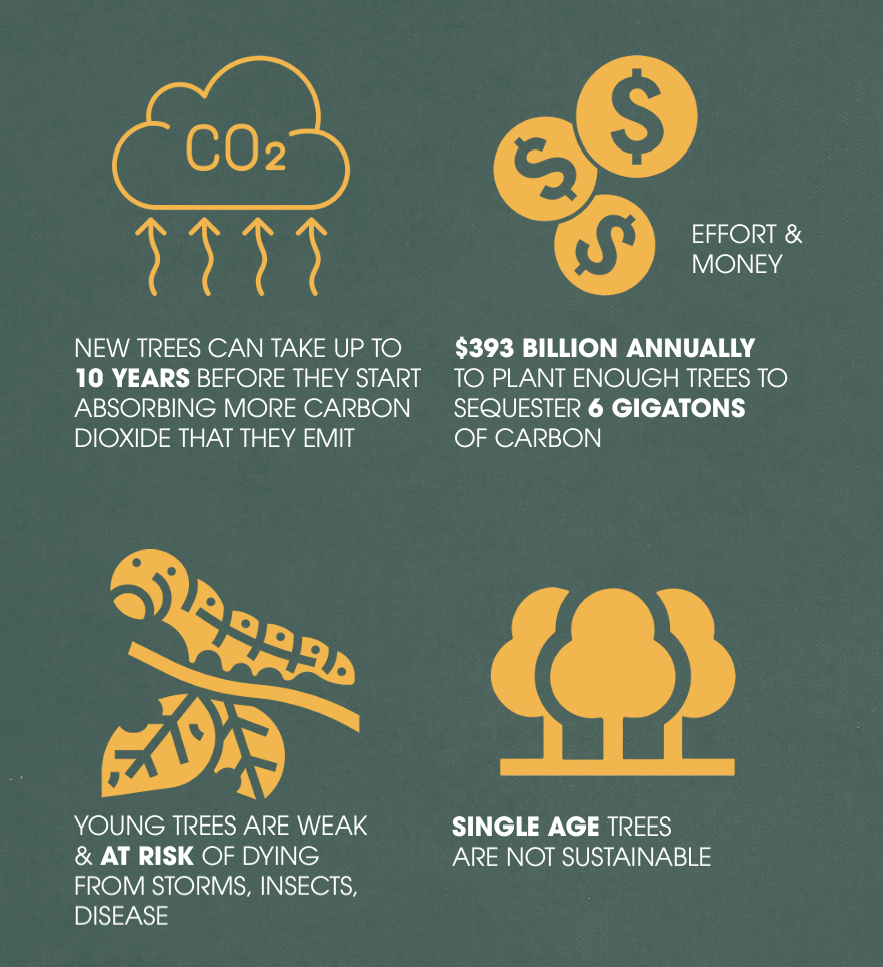
Anyone who has nurtured a living being to maturity, whether it is a pet, a child or a plant, knows that the time it takes is precious, and ending that life in an instant is unbearably tragic.
A single 80 year old oak tree can support about 500 species of caterpillars, that in turn feed hundreds of birds. One mature oak shelters about a hundred species of mammals, and 60 species of reptiles and amphibians. (“The Nature of Oaks” by Doug Tallamy is a good book to read).
Why is this important? Biodiversity helps us combat the impacts of climate change, and it helps us prevent the spread of infectious diseases. A healthy ecosystem means a healthy human population. We are, after all, part of nature.
“In American cities, low-income neighborhoods have 41% fewer trees
than wealthier ones and communities of color have 33% fewer trees
than predominantly white ones.” – The Grist, May 05, 2021
Ever hear the term Urban Heat Island Effect? In short, cities are significantly hotter than rural areas, because they have less vegetation and more heat absorbing surfaces like pavement (and mini mansions jammed together where there used to be a healthy forest, aargh!).
Trees provide shade and reduce temperatures. The lack of trees and the higher temperatures significantly impact our health, well being, and quality of life.
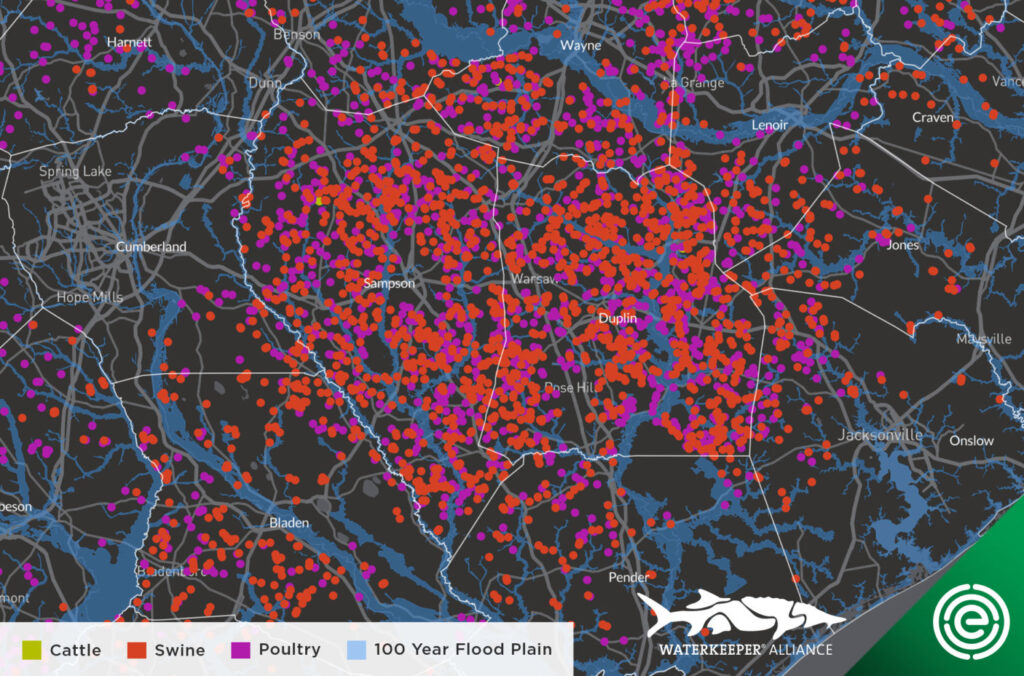
Are rural areas safe from clear cutting of trees? No! Just drive through Sampson County. I could not sleep after visiting last week. How is it possible that one county has a regional landfill, the Enviva Wood Pellet Company, and an unbelievable number of industrial hog and poultry farms, all of which require clear cutting of vast areas of land?
Wood pellets, now that is a racket that is beyond my tired mind to comprehend.
“Europe’s quest to lower carbon emissions has led to a growing demand
for energy from biomass, and North Carolina’s ample privately-owned forests,
and generous economic development subsidies have made it ground zero
for the booming wood pellet industry”. – The Heinrich Böll Foundation, 27 January 2023
Then there is the carbon sequestration a mature tree provides, and inversely the amount of carbon that is released into our atmosphere when a tree is felled. (This is also true of peat moss disturbance in our Carolina Bays — if we let them be, they sequester carbon. If we disturb the peat moss in any way, they release massive amounts of carbon! A subject for another day).
Every living organism, from the tiniest bacteria (read “I Contain Multitudes” by Ed Young), to our gentle giants, has a role to play in our lives. They are what makes our lives possible and incredibly interesting.
++++++++++++++++++++++++++++++++++++++++++++++++++++++++++++++++++++
In the past couple of weeks I have heard the word “realistic” three times in the context of environmental preservation. It has become my least favorite word in the English language. In one instance, the person said she was teaching communities to be realistic in their environmental demands! What revolutionary movement was won by being realistic? Should we be happy with eating a medium amount of dirt, as opposed to a lot of dirt? I don’t want to eat dirt!
After months of trying to figure out how to change the plans of the developers next door, I failed miserably (I could not find a single lawyer, they all work with developers). During this time, I tried to get my “green” neighborhood to engage, but only one person showed up. Another said to me that the developers are nice people, that I don’t need a lawyer, I just need to be “civil” towards these greedy monsters, and win them over.
When a couple of weeks ago, Mama Naeema told me about the EJ Road warriors, and that part of the strategy was teaching communities about zoning and planning, I thought, yes that is incredibly powerful!
It doesn’t take much for a community to lose its natural treasures. All an elected city or town council needs to do is change the zoning to industrial, and poof! There goes the entire county, its rivers, its soils, its community health. So, next time a politician says “progress” and “growth” – remember the trees and the species they support!
